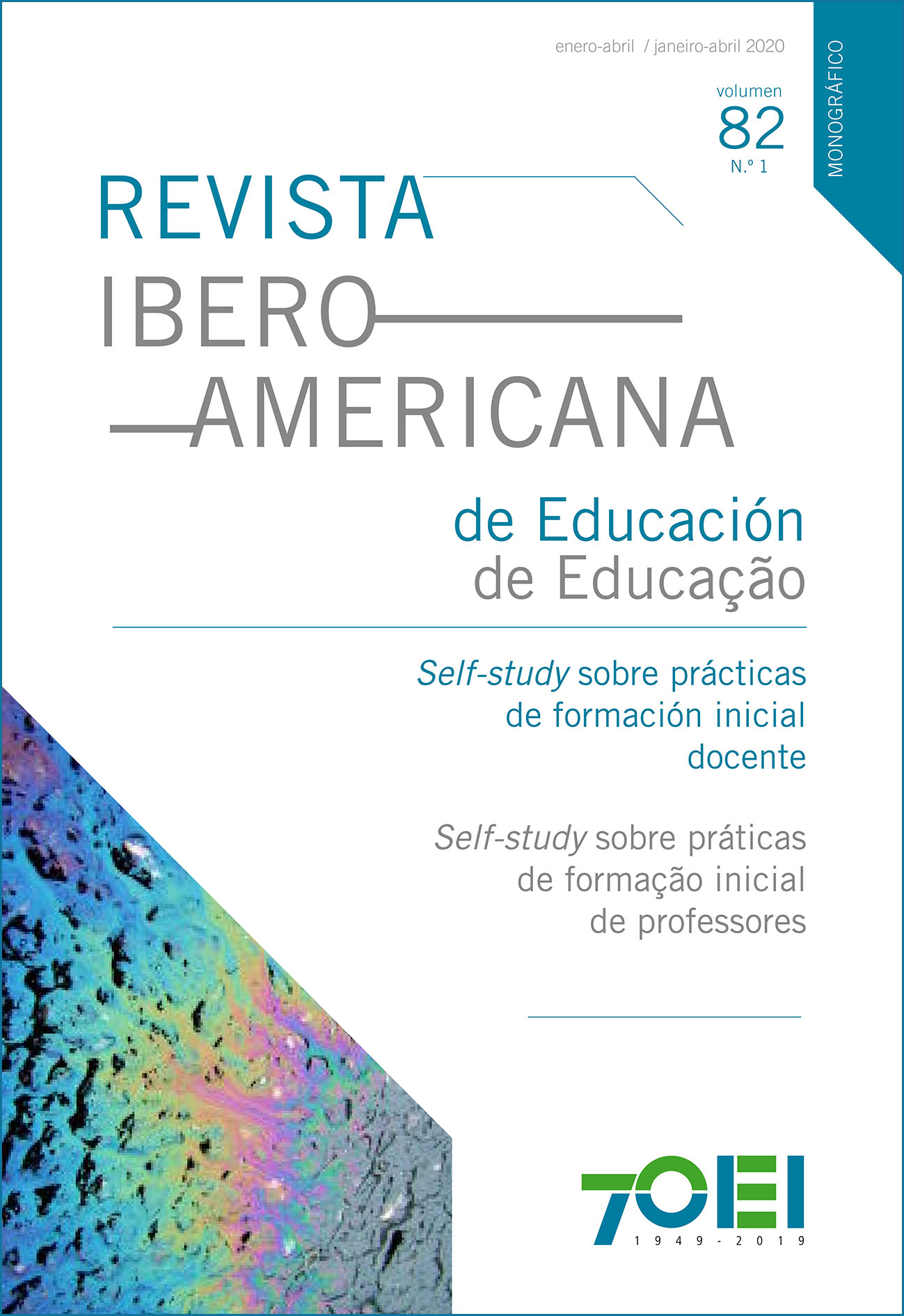Tutoring in initial education as self-study
DOI:
https://doi.org/10.35362/rie8213598Keywords:
Initial education, self-study, tutoring, teaching practice, accompanimentAbstract
The purpose of this article is to analyze the experience of initial teacher education in last year of the elementary school teacher's career in a teacher training college in Mexico. It is based on the analysis of the voices of a group of teache purpose of this article is to analyze the experience of initial teacher education in last year of the elementary school teacher’s career in a teacher training college in Mexico. It is based on the analysis of the voices of a group of teachers in training interviewed, whose narratives are interpreted from the framework of social meanings. From the training located in the tutoring, valued as a formative strategy from the self-study, understood as a research discipline that studies, in a systematic way how teacher trainers allow their students to learn and analyze their own practices, with the ultimate intention to have a rigorous awareness of what they do, in order to improve their profession, to produce their own knowledge of the discipline of focused and self-initiated teaching, aimed at improvement, interactive-collaborative. From the previous approach, this study analyzes the opinions of students or teachers in training in the last degree of their career through a case study, with a qualitative and descriptive methodology. One of the relevant findings shows that the tutoring that takes place in the normal school referred to, is still linked to the tradition that weights the prescription before the reflexive analysis of the teaching practice.
Downloads
References
Bárcena, F., y Mèlich, J-C. (2014). La educación como acontecimiento ético. 2ª edición. Buenos Aires: Miño y Dávila. Disponible en https://bit.ly/35zBoUI
Cook, T. D. y Reichardt, CH. (2000). Métodos cuantitativos y cualitativos en investigación evaluativa. Madrid: Morata.
Cornejo, J. (2016). El Self-Study de la práctica de los formadores de futuros profesores: bases teóricas, características y modalidades metodológicas. En T. Russell, R. Fuentealba, y C. Hirmas (Comp.) . Formadores de formadores, descubriendo la propia voz a través del self-study. Santiago de Chile: OEI. Disponible en https://bit.ly/2UmR8c9uu
Day, C. (2006). Pasión por enseñar: la identidad personal y profesional del docente y sus valores (Vol. 4). Narcea ediciones.
De la Torre, S. (2004). Aprender de los errores. El tratamiento didáctico de los errores como estrategias innovadoras. Argentina: Editorial Magisterio del Río dela Plata.
Delval, J. (2001). Aprender en la vida y en la escuela. Madrid: Editorial Morata
Ducoing, P. y Fortoul B. (Coord.) (2013). Procesos de formación 2002-2011. Volumen I. Estados del conocimiento 2002-2012. México: Consejo Mexicano de Investigación Educativa.
Fortoul, M. B. (2008). La concepción de la enseñanza según los estudiantes del último año de la licenciatura en Educación primaria en México. Perfiles educativos, 30(119), 72-89.
Fuentealba, R. & Imbarack, P. (2014). Compromiso docente, una interpelación al sentido de la profesionalidad en tiempos de cambio. Estudios pedagógicos (Valdivia), 40(especial), 257-273.
Korthagen, F.A.J. (1995). A reflection on five reflective accounts.Theme issue self-study and living educational theory. Teacher Educational Quarterly, 22(3), pp. 99-105
Mèlich, J-C. (2006). Tres ensayos de Filosofía de la Educación. Buenos Aires: Miño y Dávila.
Mèlich, J-C. (2010). Ética de la compasión. Barcelona: Herder.
Mercado, E. (2013). Acompañar al otro: saberes y prácticas de los formadores de docentes. México: Díaz de Santos.
Ortega, P. (2016). La ética de la compasión en la pedagogía de la alteridad. Revista española de pedagogía, LXXIV(264), 243-264.
Paz, O. (2003). Ideas y Costumbres. (La letra y el cetro. Usos y símbolos). Obras Completas VI, Barcelona, p.649
SEP (2012). Plan de Estudios para la Formación de Maestros de Educación Primaria. México: Secretaría de Educación Pública.
Schön, D. (1995). Como piensan los profesionales en la acción: el práctico reflexivo, en formación de formadores, materiales para la formación de educadores desde la educación superior. N 1, CEAAL, Chile; Dimensión educativa, Bogotá.
Treviño, E. y Cruz, R. (2014). La Reforma Integral de la Educación Básica en el discurso docente. Perfiles Educativos, XXXVI(144), 50-68
Tyack, D. y Cuban, L. (2001): En busca de la utopía. Un siglo de reformas de las escuelas públicas, Ciudad de México, FCE.
Yuni, J.A. y Urbano, C. A. (2014). Técnicas para investigar: recursos metodológicos para la preparación de proyectos de investigación. Córdoba: Brujas.
Yurén, T. (1999). Formación, horizonte del quehacer académico. México: UPN
Yurén, T. (2012). Formación, eticidad y relación pedagógica. En Formación y puesta a distancia. Su dimensión ética (pp.27-41). México: Paidós.
Zizek, S. (1992), El sublime objeto de la ideología, México: Siglo XXI.
How to Cite
Downloads
Published
Issue
Section
License
Any authors who publish with this journal accept the following terms:















